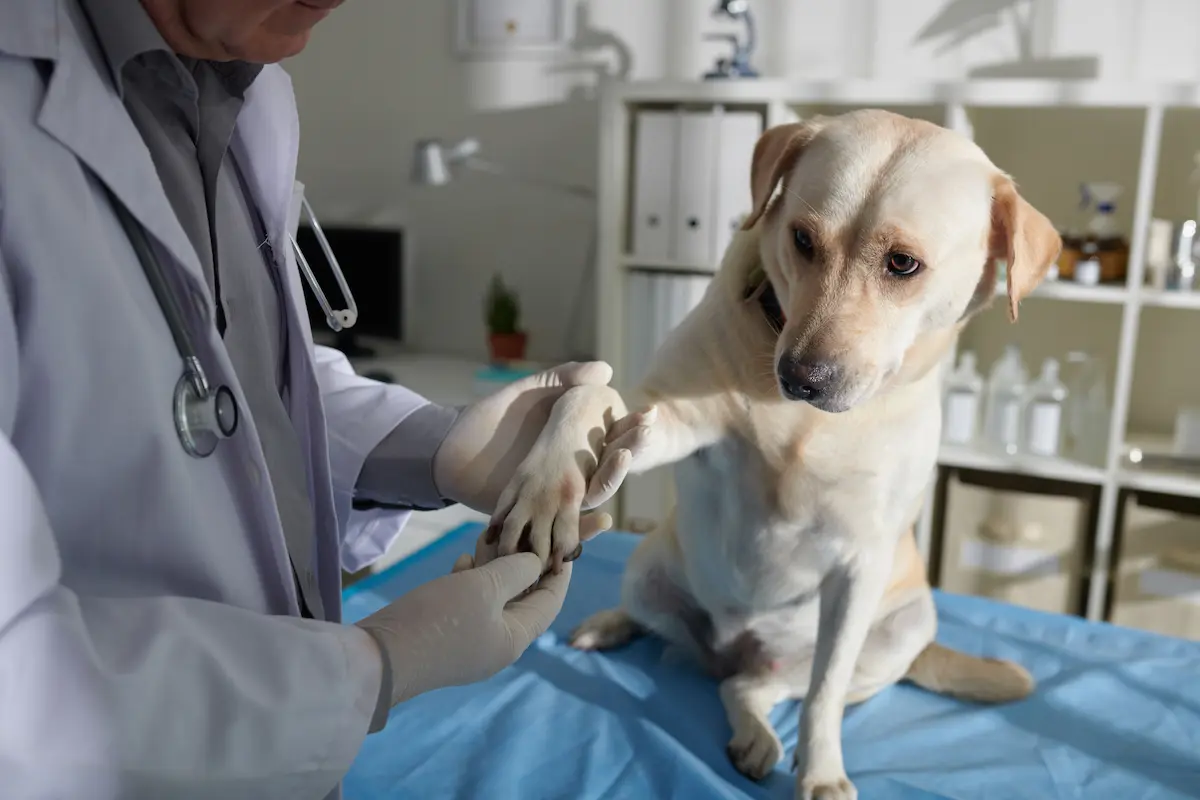Dog mobility checks at home in Tasmania

Why Choose Adventure Vets for Mobility Checks?
Mobility problems, arthritis, and joint disease affect many dogs, especially as they age. Adventure Vets brings expert mobility assessment and pain management directly to your home, allowing your dog to be examined in their comfortable environment where their natural movement patterns are easiest to observe.
When to Call Adventure Vets for a Mobility Check
Adventure Vets can assess and manage a wide range of mobility issues during mobile consultations, providing professional care tailored to your dog's needs.
Book a consultation if your dog shows:
- Stiffness, especially after resting or in cold weather
- Difficulty rising from lying down
- Limping or favouring certain legs
- Reluctance to jump up, climb stairs, or get into cars
- Lagging behind on walks or tiring easily
- Reduced interest in play or exercise
- Sensitivity or pain when touched in certain areas
- Changes in posture or gait
- Muscle loss or asymmetry
Common conditions we assess and manage: Osteoarthritis, degenerative joint disease, hip dysplasia, elbow dysplasia, cruciate ligament issues, patellar luxation, spinal problems, and general age-related mobility decline.
Please note: For severe mobility problems requiring imaging or surgical intervention, we'll provide the appropriate referral.
What's Included in Your Mobility Check
Every mobility consultation with Adventure Vets includes a comprehensive musculoskeletal assessment to diagnose and manage your dog's joint and mobility concerns.
Dr Fisher performs detailed mobility evaluations including observation of your dog's natural movement in their home environment.
Your consultation includes:
- Complete mobility and gait assessment
- Evaluation of all major joints (hips, elbows, knees, shoulders)
- Range of motion testing for each joint
- Muscle tone and symmetry examination
- Palpation for pain, swelling, or abnormalities
- Observation of walking, rising, and stair climbing
- Medical history discussion focusing on symptom progression
- Pain scoring and quality of life assessment
- Treatment recommendations including medications, supplements, and lifestyle modifications
- Prescription pain relief and anti-inflammatory medications when appropriate
- Environmental modification advice (ramps, bedding, flooring)
- Ongoing management plan for chronic conditions
How it works
When you book a mobility check with Adventure Vets, we make the process gentle and stress-free for you and your dog.
Book an Appointment
- Book online or call, describing mobility concerns
- Note when symptoms started and how they've progressed
- Mention any previous joint problems or injuries
- Prepare list of current medications if applicable
Visit Day
- Get estimated arrival time
- Clear space for observing your dog's movement
- Expert mobility and joint examination
- Pain management medications and advice provided
After Visit
- Follow pain management and exercise plan
- Attend scheduled follow-up visits to monitor progress
- Reach out if you have any concerns.
Frequently asked questions
We recommend mobility assessments for senior dogs (7+ years for large breeds, 10+ years for small breeds), dogs with previous injuries, and any dog showing signs of stiffness or discomfort.
Yes, we can prescribe pain relief medications, anti-inflammatories, and joint supplements. We'll also provide advice on weight management, exercise modifications, and home environmental changes.
We'll provide tailored recommendations which may include gentle exercise routines, weight management, joint supplements, orthopaedic bedding, ramps, non-slip flooring, and physiotherapy exercises.
Not always. Many mobility issues can be assessed and managed based on clinical examination. If advanced imaging is needed, we'll provide referrals to appropriate facilities.
For dogs with chronic arthritis, we recommend regular assessments every 3-6 months to monitor progression and adjust treatment as needed.

.svg)




